Deception Pass
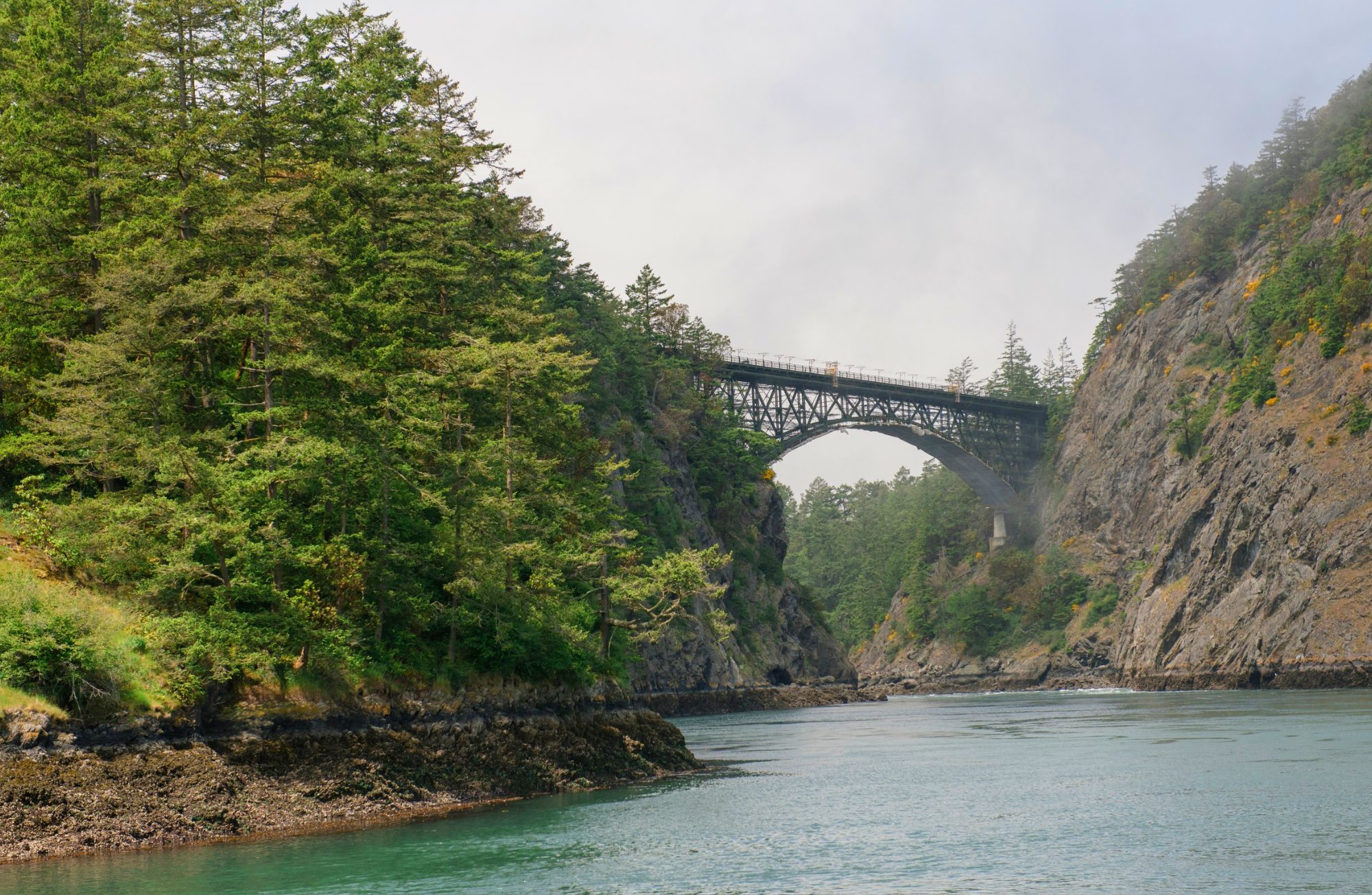
Deception Pass derives its name from its complex and tricky currents that can deceive mariners. It is notorious for its powerful and unpredictable tidal currents that can shift rapidly. Mariners, unfamiliar with the area often found themselves deceived by the challenging conditions. Navigating through the pass required skill and local knowledge to avoid dangerous whirlpools, strong eddies, and turbulent waters. Before European settlers arrived the indigenous tribes relied on the pass as a crucial trade route providing access to prime fishing grounds. Deception Pass holds a place of historical significance, symbolizing the resilient maritime traditions and skills of Native American peoples who thrived in the challenging coastal environment. Their mastery of the pass’s currents & ability to safely navigate its waters contributed to the rich cultural tapestry of the region.
Photo taken by: @KelseyKurtis
Learn more about Deception Pass here.
Check out the rest of Whidbey’s beautiful destinations from this series here.
Cranberry Lake
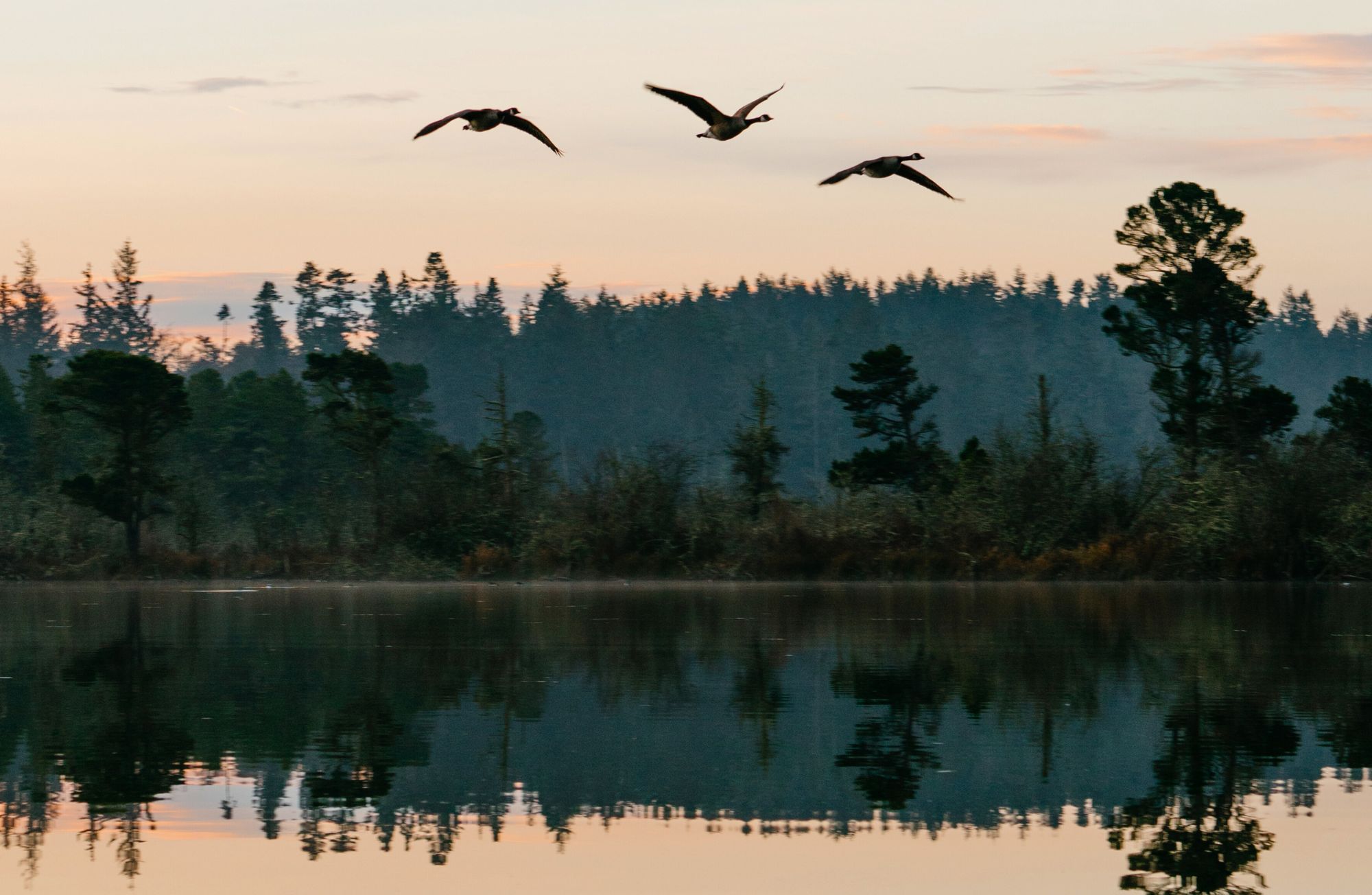
Nestled within the breathtaking expanse of Deception Pass Park on Whidbey Island, discover Cranberry Lake. There is a phenomenon at Cranberry Lake where the fresh waters are separated from the saltwater of the Salish Sea. The two are separated by a relatively thin strip of sand. This serene lake offers more than picturesque views; it’s a sanctuary for various plant and animal species. The lake’s wetlands provide crucial habitat for migratory birds, and the waters house resident bass and perch or stocked trout. Cranberry Lake’s ecosystem is a testament to the delicate interplay between land and water. Visiting this natural wonder offers tranquility and a chance to witness firsthand the intricate web of life within its shores, embodying the park’s commitment to preservation and natural harmony.
Check out the rest of Whidbey’s beautiful destinations from this series here.

The Development of Deception Pass
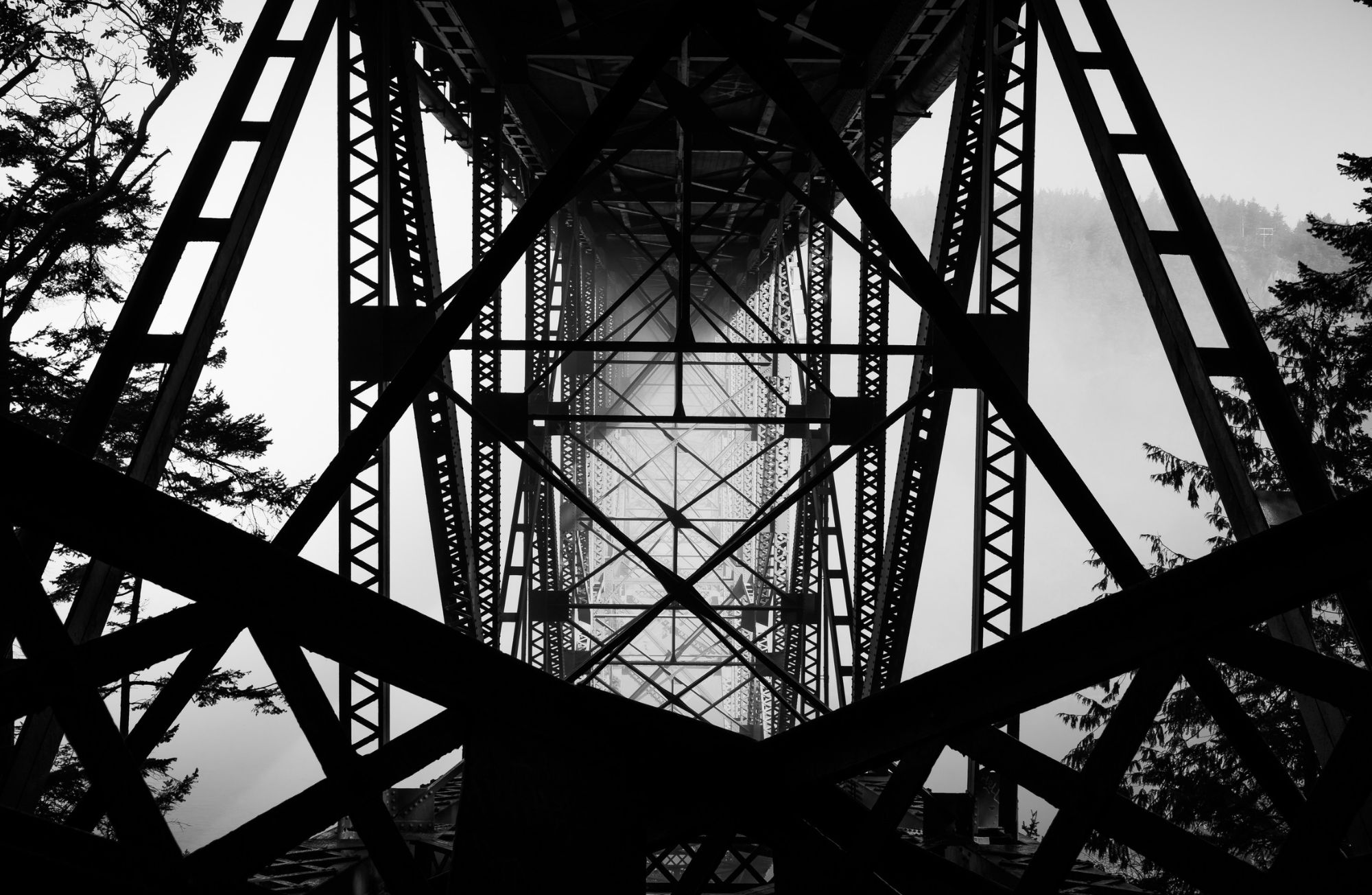
Recognized for its breathtaking beauty and stunning engineering, the Deception Pass Bridge is one of the most iconic landmarks in Washington State. Spanning the turbulent waters of Deception Pass and connecting Whidbey Island to Fidalgo Island. The bridge has become a symbol of the Pacific Northwest’s natural and manmade wonders, drawing countless visitors each year.
Boating Under Deception Pass
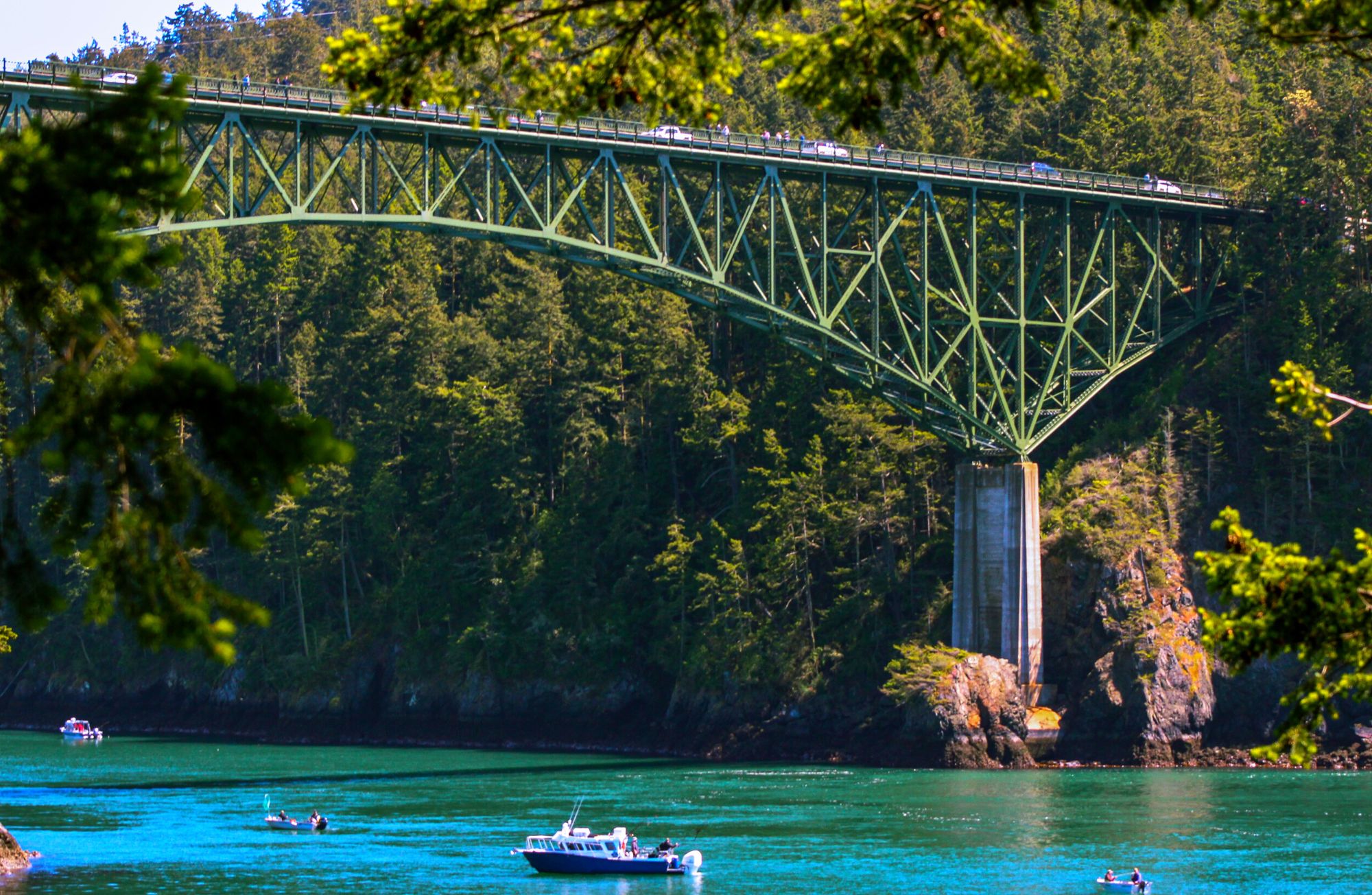
Have you ever thought about boating under Deception Pass? Deception Pass stretches over three islands creating two channels of water. The smaller narrower passage named Canoe Pass tends to be used for those traveling in kayaks as it is roughly only 30 feet in width. While both are framed by high rocky sides the larger of the two passageways has some of the fastest and strongest currents in all of Puget Sound. Boaters beware! 4 times a day waters from the Strait of Juan de Fuca (to the west) and Saratoga Passage (from the east) push more than 127 million pounds of water per second through this 150-foot passageway creating currents that can exceed 9 knots. While it is gorgeous, it is important for boaters to know when and how to travel safely through the pass.
This photograph was taken by Kyle Brown
If you would like to learn more about Whidbey Connect with us here.
You can also, check out the rest of Whidbey’s beautiful destinations from this series here.
Navigate to Deception Pass:
Sunset at Deception Pass State Park
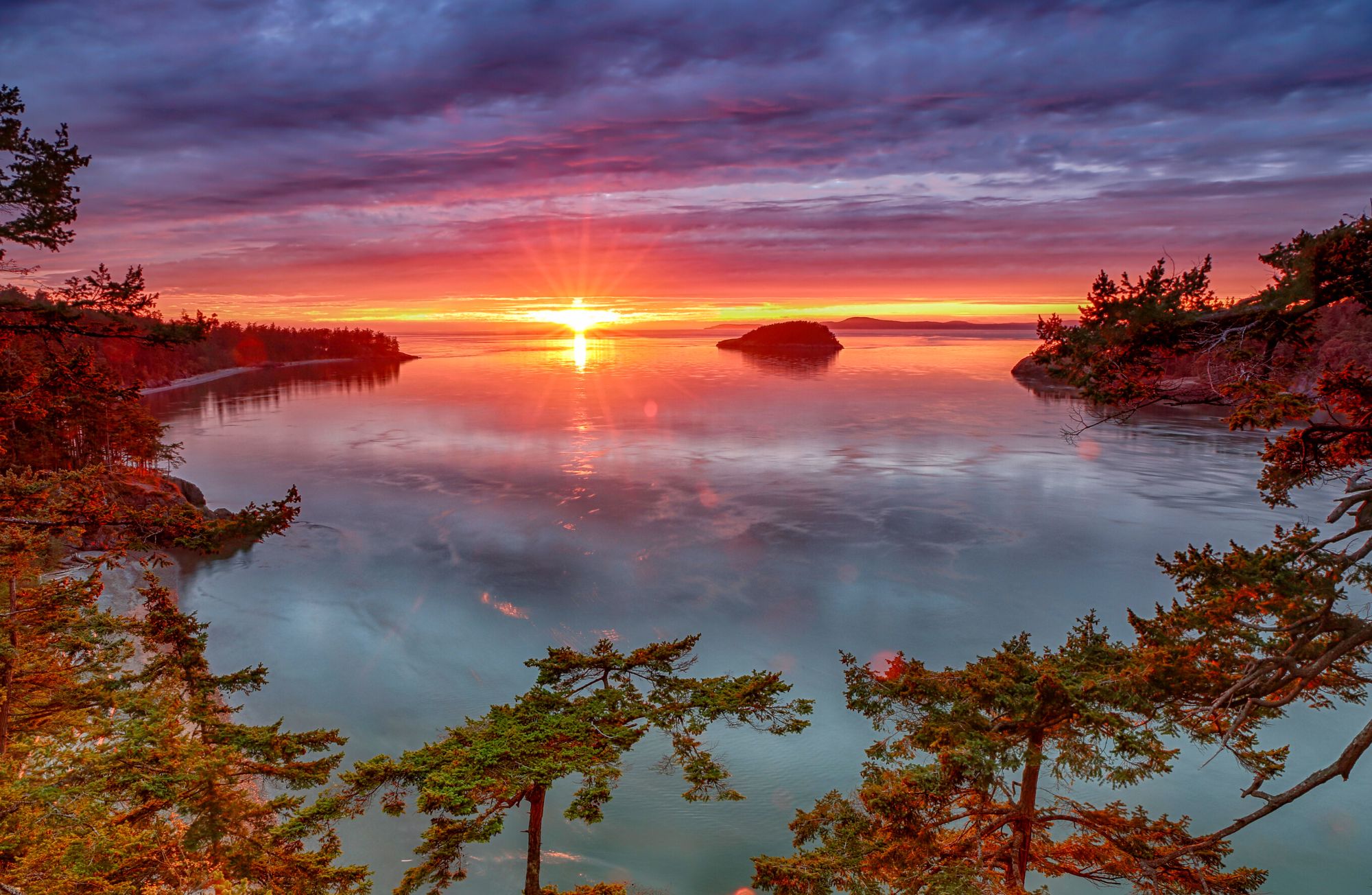
Destination Deception Pass! Have you ever stopped for a sunset at Deception Pass State Park? This image, taken from Pass Island looking out towards Deception Island at sunset, is one of the glorious scenes that keep Deception Pass the #1 most visited park in all of Washington State! There are so many ways to enjoy the scenery of this park. From the courageous and skilled boaters who brave swirling currents and tidal ranges over 12 feet apart to the day-use picnickers who enjoy West Beach tables barely a foot from the trunk of their car and everyone in between. Even in the depths of winter, there is magic in the evergreen forests and iconic PNW views to fuel the outdoor spirit of anyone who visits!
Check out the rest of Whidbey’s beautiful destinations from this series here.
Get directions to Deception Pass here.
Clam and Mussel Harvesting on Whidbey
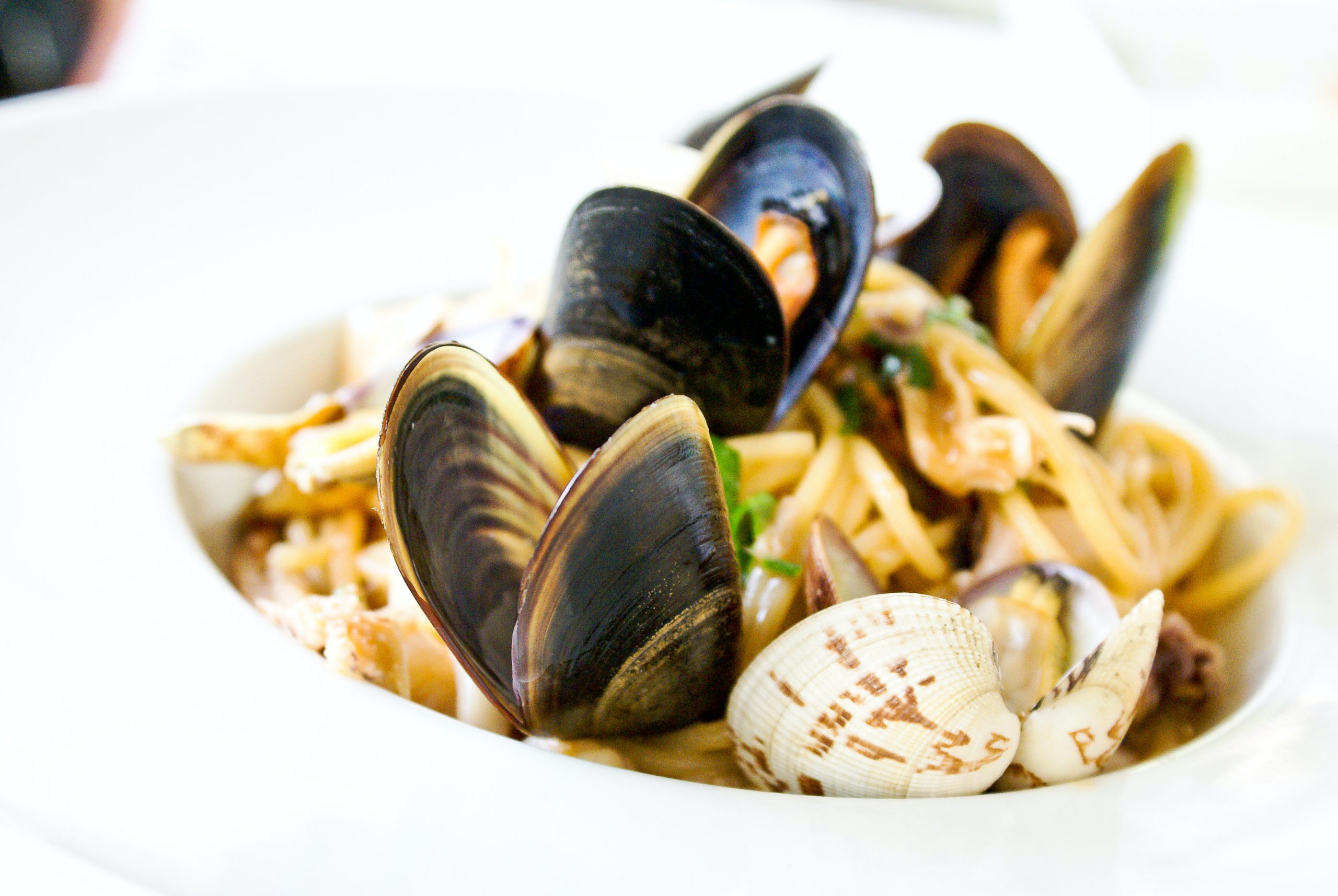
Whidbey Island is a spectacular destination in the Pacific Northwest that offers residents and visitors many opportunities to explore the natural world. One of the most popular activities on Whidbey Island is clam and mussel harvesting. If you are looking for a fun and rewarding way to experience the island’s unique ecosystem, clamming and mussel harvesting is a great way to do it.
Best Time to Harvest Clams and Mussels on Whidbey Island
The best time to harvest clams and mussels on Whidbey Island is during the summer months. During this time, the tides are low and the weather is generally mild, making it an ideal time to head out to the beach. It is especially important to check the tide charts before you head out to make sure you are arriving at the beach during low tide.
Clam and Mussel Harvesting Locations on Whidbey Island
There are a plethora of places to go clam and mussel harvesting on Whidbey Island. Some of the most popular locations for clam and mussel harvesting on Whidbey Island are:
- Penn Cove – Located on the northeast coast of Whidbey Island in Coupeville. Penn Cove is a great place to go clamming and mussel harvesting. This area is known for its large geoduck clams, which can be challenging to harvest but are well worth the effort.
- Double Bluff Beach – Located on the southern end of Whidbey Island in Freeland. Double Bluff Beach is known for its butter clams, which are easy to harvest and delicious to eat.
- Mutiny Bay – Located on the southwestern coast of Whidbey Island in Freeland. Mutiny Bay is known for its Manila clams, which are small but abundant.
Tips for Clam and Mussel Harvesting on Whidbey Island
Before you head out to harvest clams and mussels on Whidbey Island, there are a few things you should keep in mind:
- Make sure you have an active permit – Check here to make sure you have not only the right permit but also to buy your permit online or locate a local license dealer.
- Check the regulations – Make sure you are familiar with the regulations for clam and mussel harvesting on Whidbey Island before you go. You can find them by visiting the Washington Department of Fish and Wildlife’s website here. These regulations can change from year to year, so it’s important to check them before you head out.
- Bring the right gear – You will need a few basic tools to go clam and mussel harvesting, including a shovel, a bucket or bag to carry your harvest, and a clamming or mussel harvesting license if required. You’ll also want a sturdy pair of rubber boots or waders.
- Respect the environment – When you are harvesting clams and mussels, it is important to respect the environment. Only take what you need and make sure to leave the area in good condition for future harvesters so that you can enjoy harvesting year after year.
Clam and mussel harvesting is a fun and rewarding activity. With its many beautiful beaches and abundant shellfish populations, there are plenty of opportunities to explore the island’s unique ecosystem. Whether you’re a seasoned shellfish harvester or a first-timer, Whidbey Island is a great place to go clamming and mussel harvesting. Interested in making this beautiful place your home? Connect with us so we can help make your dream come true.
Sailing Whidbey
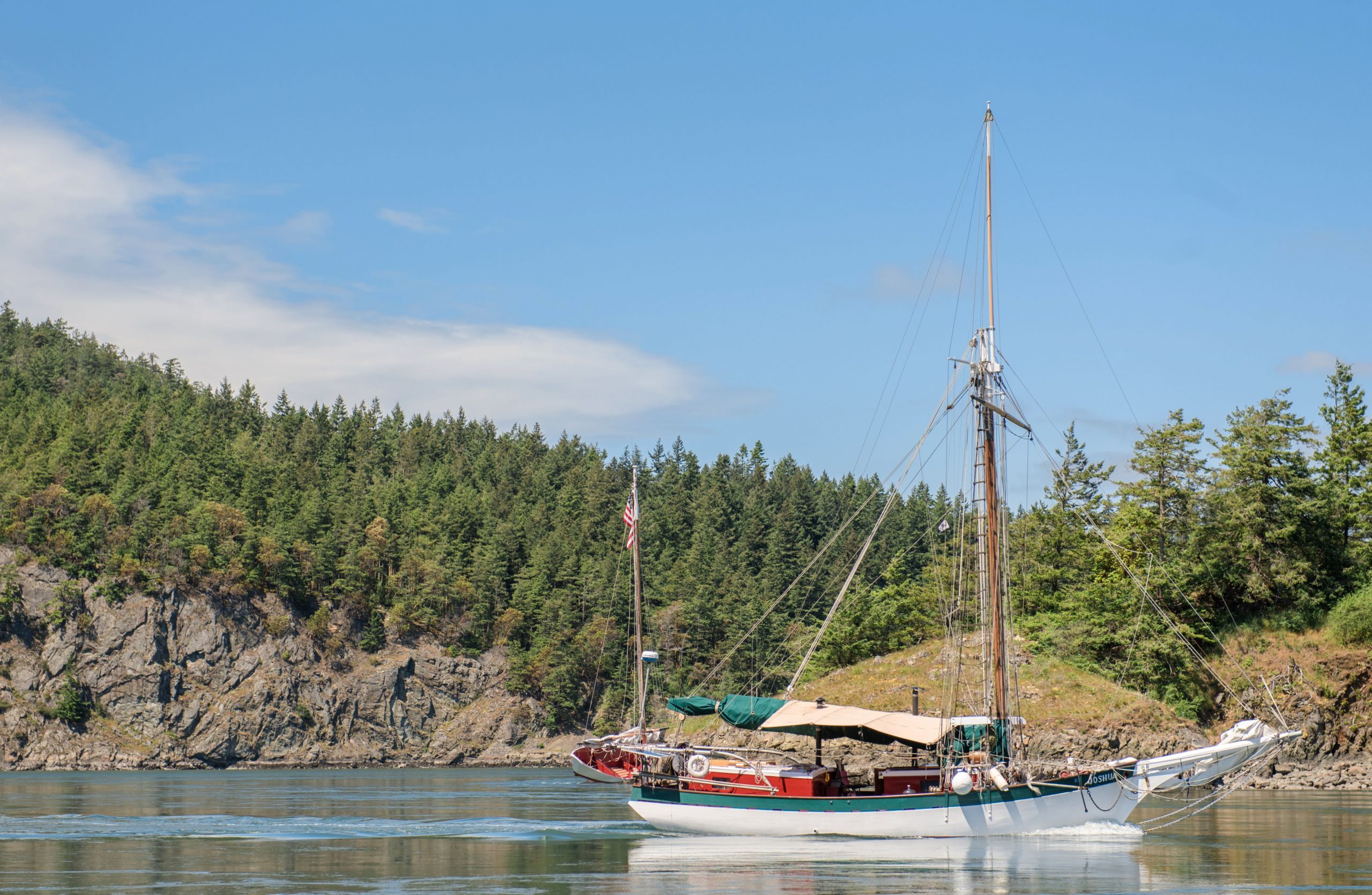
It is no wonder tourists and residents alike enjoy setting their sails and heading out to sea to enjoy our gorgeous Puget Sound waters. Whether by powerboat, sailboat, or even kayak, Whidbey is the perfect place to explore by water. Catch a glimpse of whales feeding in Saratoga Passage, seals cruising under Deception Pass, Eagles soaring past Ebey’s Landing, or if you are really lucky maybe you will catch sight of a magnificent pelican near Honeymoon Bay. It’s not a relaxing endeavor, with some of the world’s most complex currents, thousands of “islands”, and large river deltas to navigate, the Puget Sound requires lots of skill and knowledge to enjoy safely.
Check out the rest of Whidbey’s beautiful destinations from this series here.
Pier at Cranberry Lake
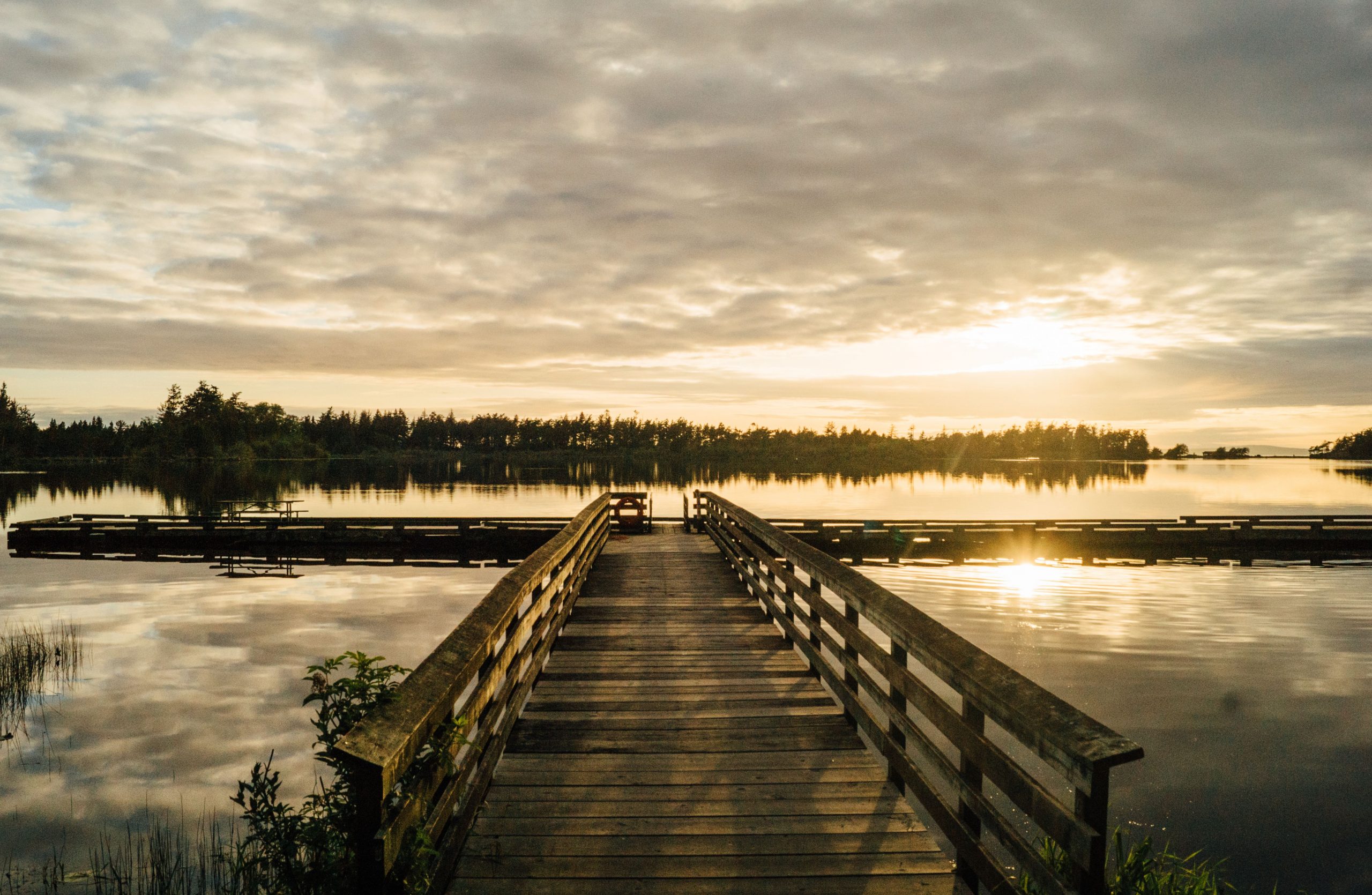
Deception Pass State Park is packed with a plethora of things to do year-round. From hiking trails, camping, swimming, kayaking, even the occasional events held at the amphitheater, but unbeknownst to those rushing by to make a big splash in the designated swimming area there is a quaint pier surrounded by reeds on the other side of Cranberry Lake. From this dock discover fishermen of all ages scattered along the edges of the pier. Each has their own techniques for catching a stocked Rainbow or Brown Trout, or a resident Largemouth Bass or Yellow Perch. It is a great place for beginners and expert anglers alike!
Check out the rest of Whidbey’s beautiful destinations from this series here.
View this post on Instagram
Destination Deception Pass
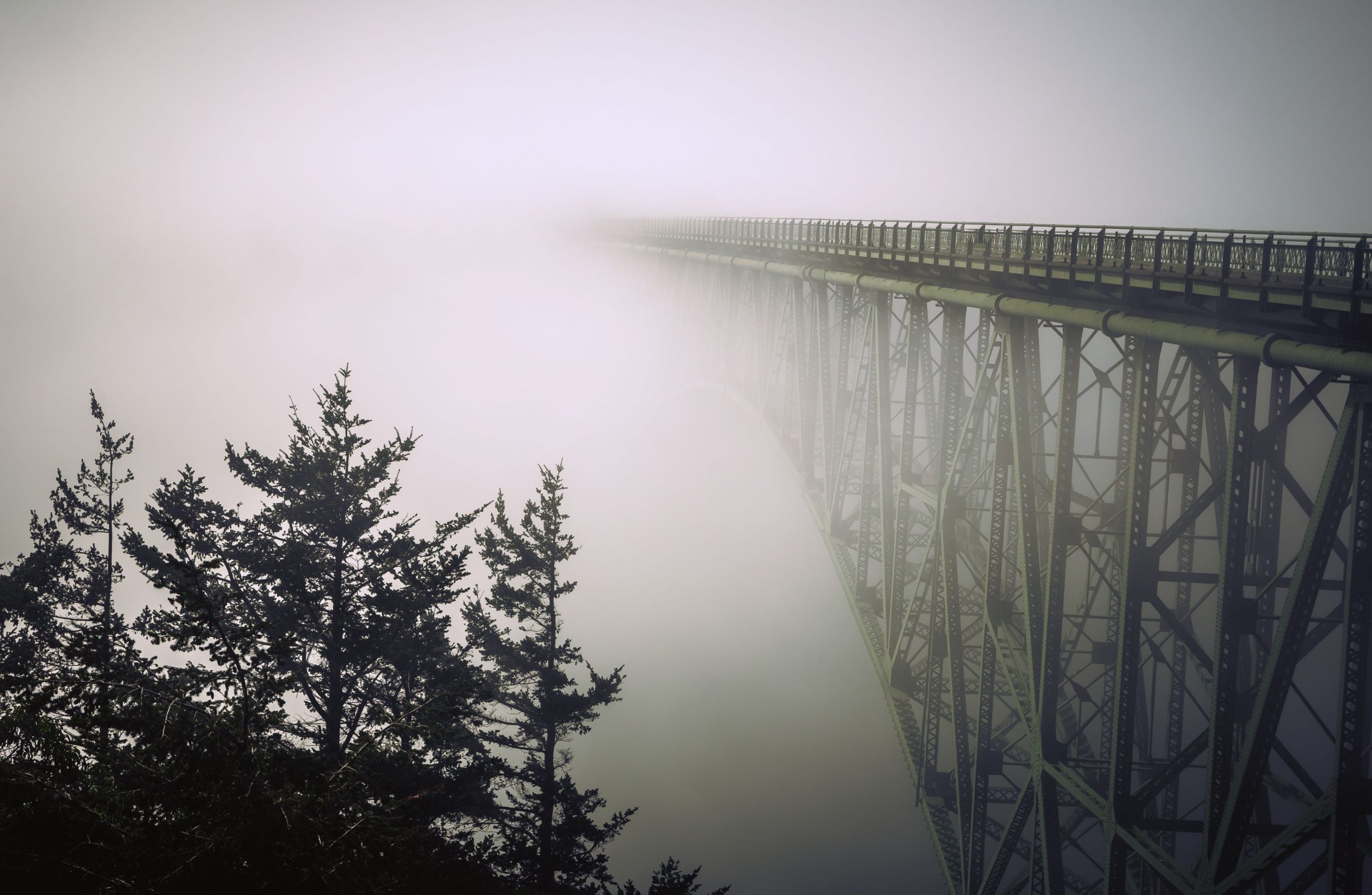
Deception Pass is a stunning destination any time of the year. It’s busiest in the summer because people enjoy splashing in the salt or freshwater options at the park or putting their feet in the warm sand under blue skies and hot sun. However, from mid-fall to early spring in the PNW fog rolls in over the trees and around the bridge giving it a cozy yet mysterious feel. Many will call this time the true Pacific Northwest-style that offers a different take on the island’s appeal. Whatever your preferred season, Deception Pass State Park is the most visited park in Washington for a reason! Get out and explore!
Check out the rest of Whidbey’s beautiful destinations from this series here.
View this post on Instagram
Deception Pass
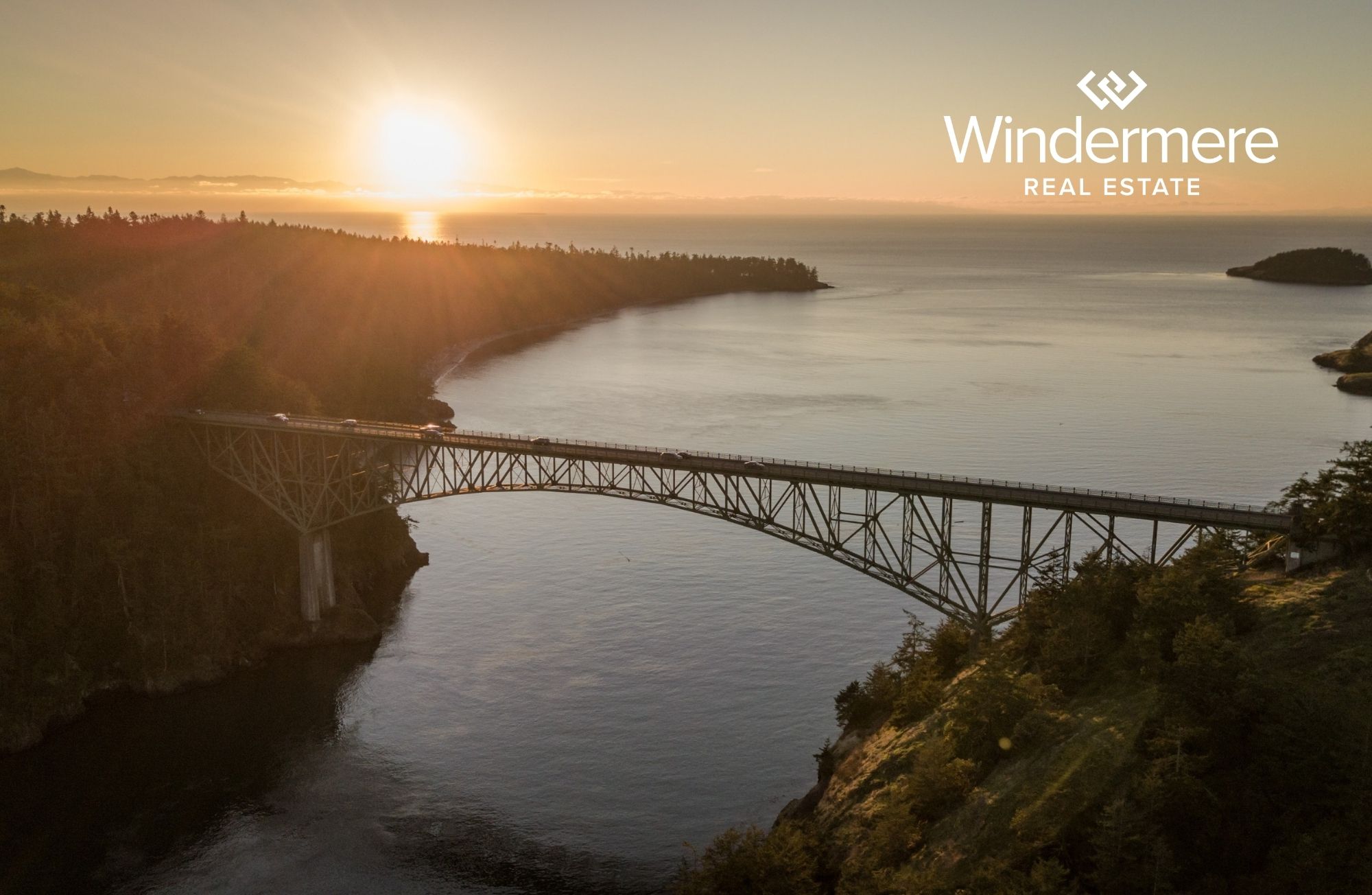
Washington’s most visited park can be attributed to its prominent historical landmark, the Deception Pass Bridge. Thoughts of the landscape without this icon are unimaginable yet only 100 years ago the barren Pass was simply a deep and turbulent channel of water connecting the Strait of Juan de Fuca with the Saratoga Passage. After years of only an unscheduled ferry to get you off the island (for which passengers were required to bang an old saw with a mallet to summon) construction of the bridge finally began in 1934. At noon on July 31st, 1935 dedication of Deception Pass bridge took place and marked the beginning of a new era for Whidbey Island. Construction of the bridge played a large role in the decision to build NAS Whidbey and in turn helped Oak Harbor to flourish into the thriving city it is today. Tourists and locals alike continue to flock to the bridge in hopes of capturing its impressive beauty.
Follow the photographer on Instagram @chrisjdubs
Check out the rest of Whidbey’s beautiful destinations from this series here.

 Facebook
Facebook
 X
X
 Pinterest
Pinterest
 Copy Link
Copy Link